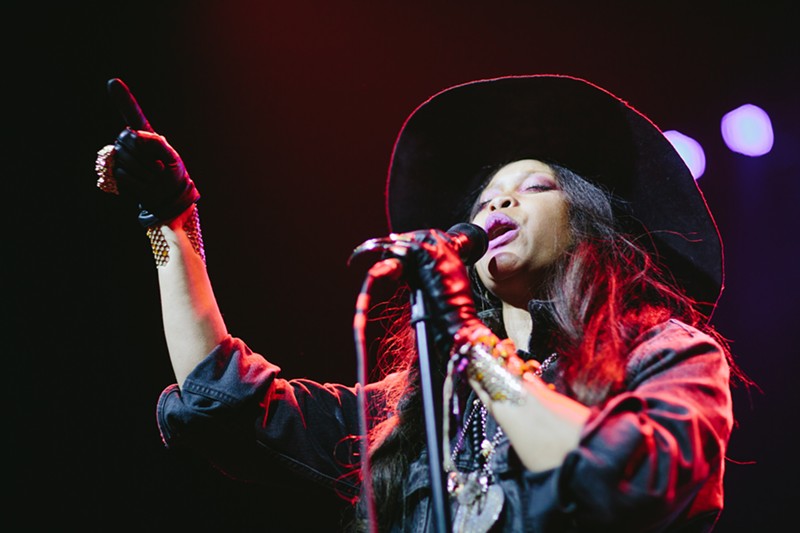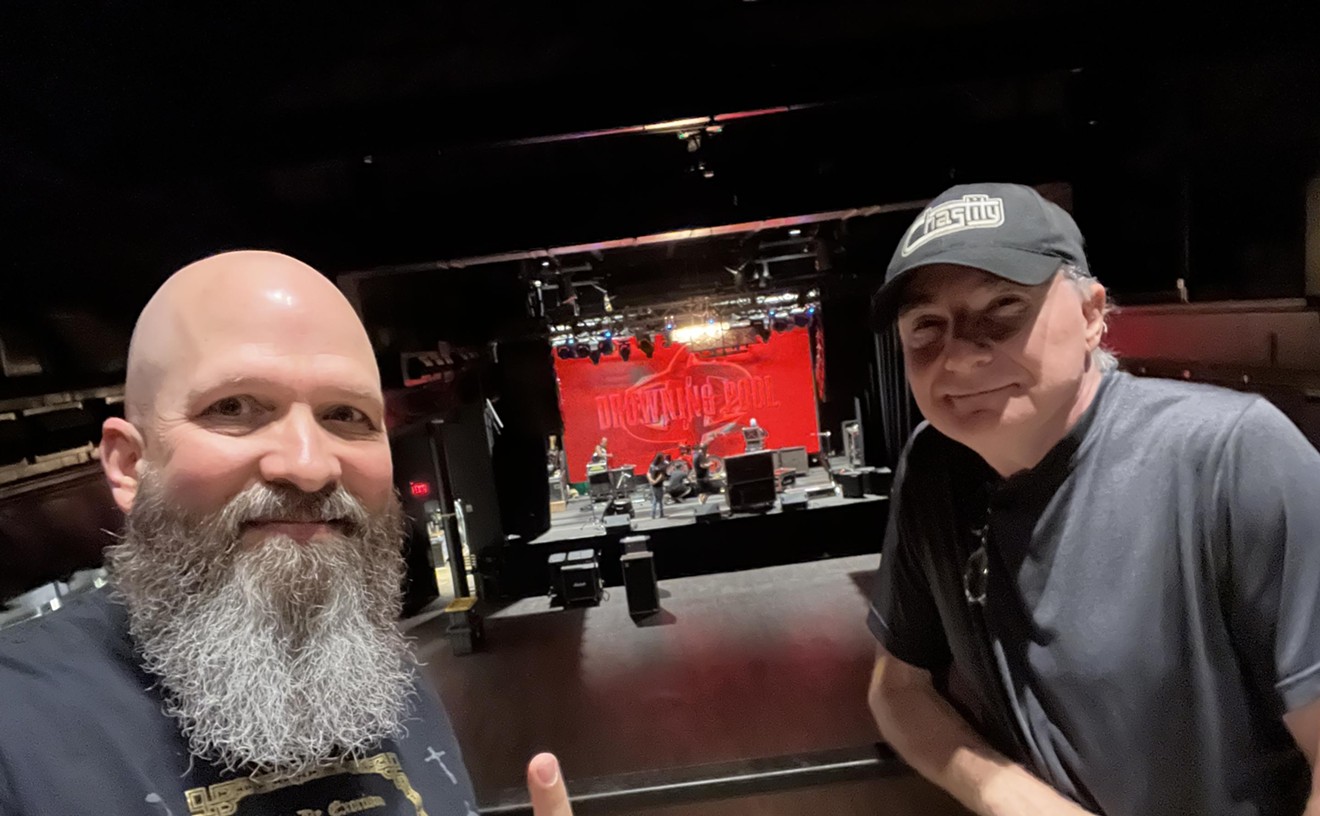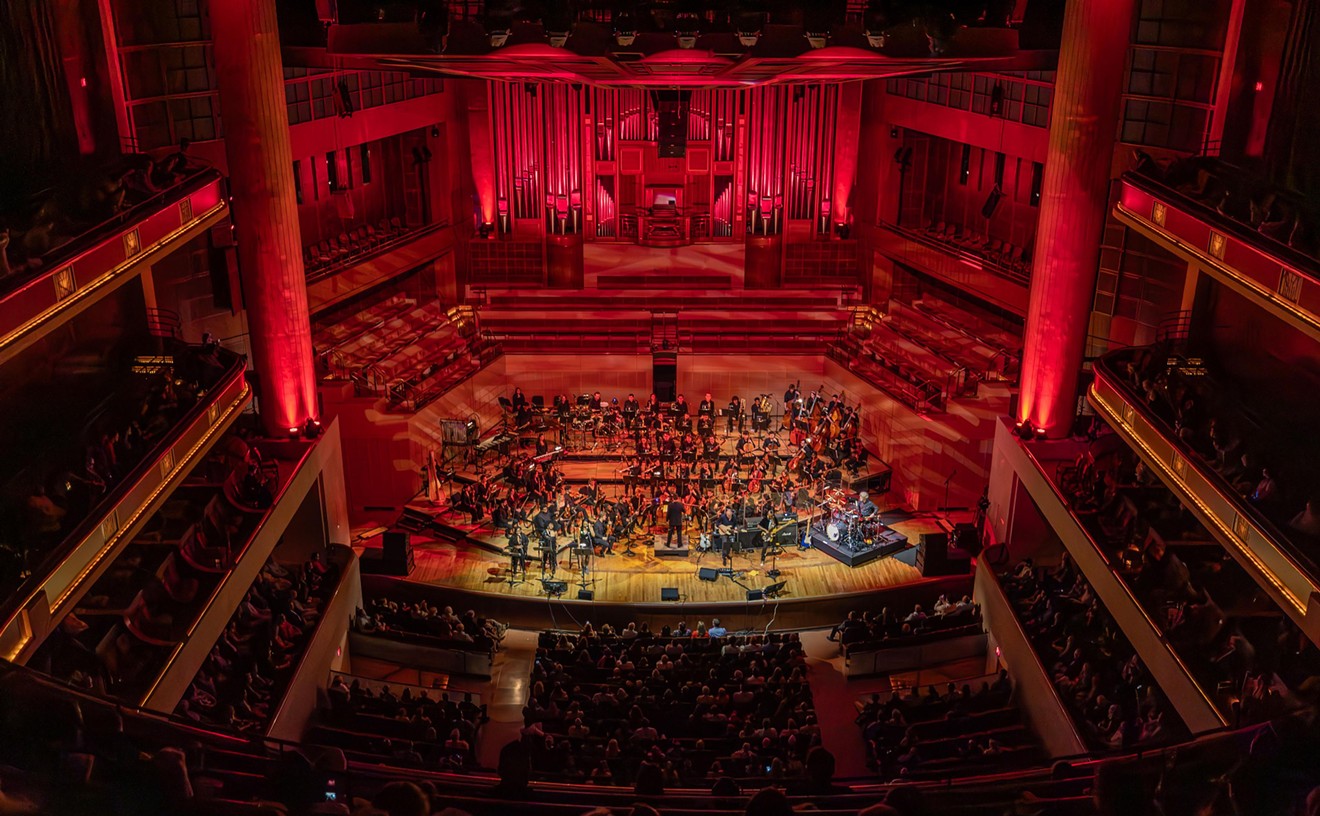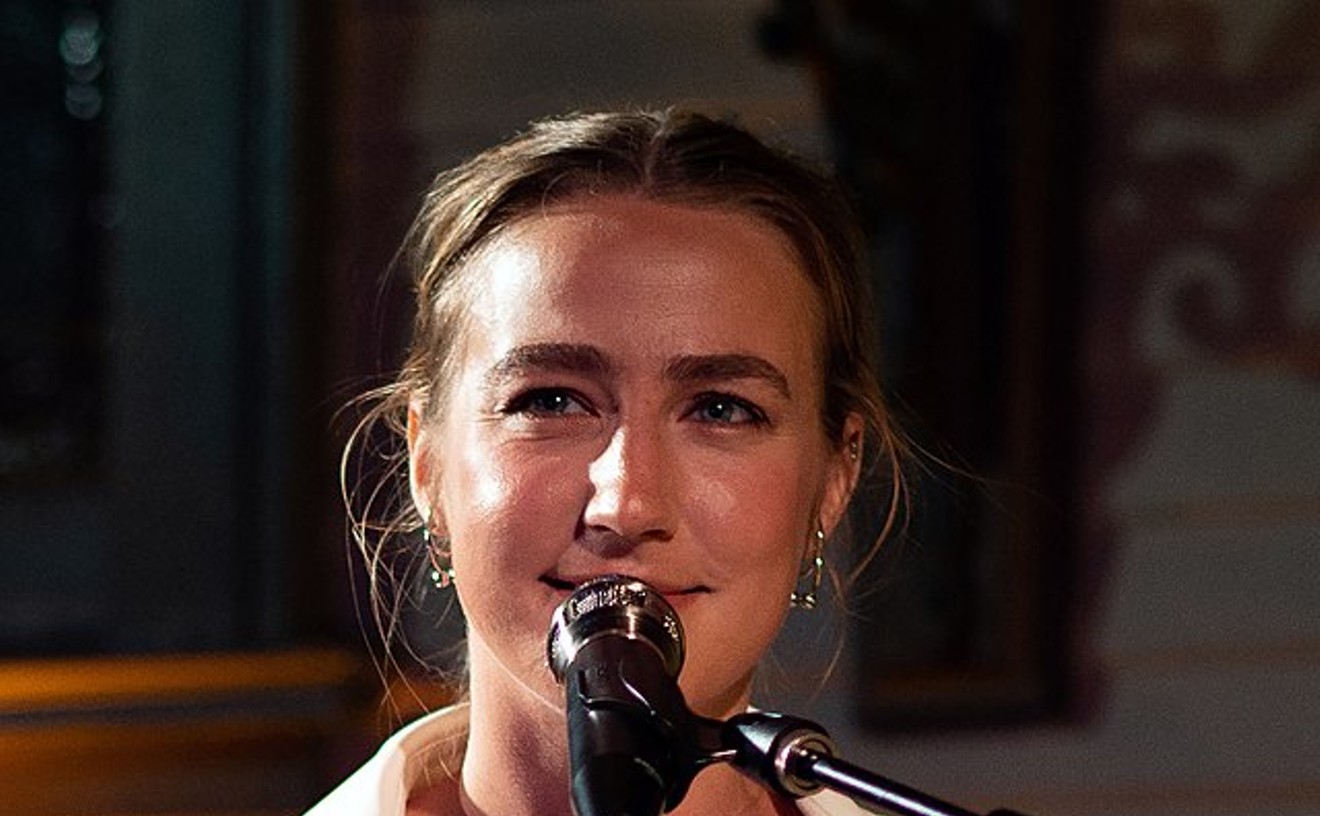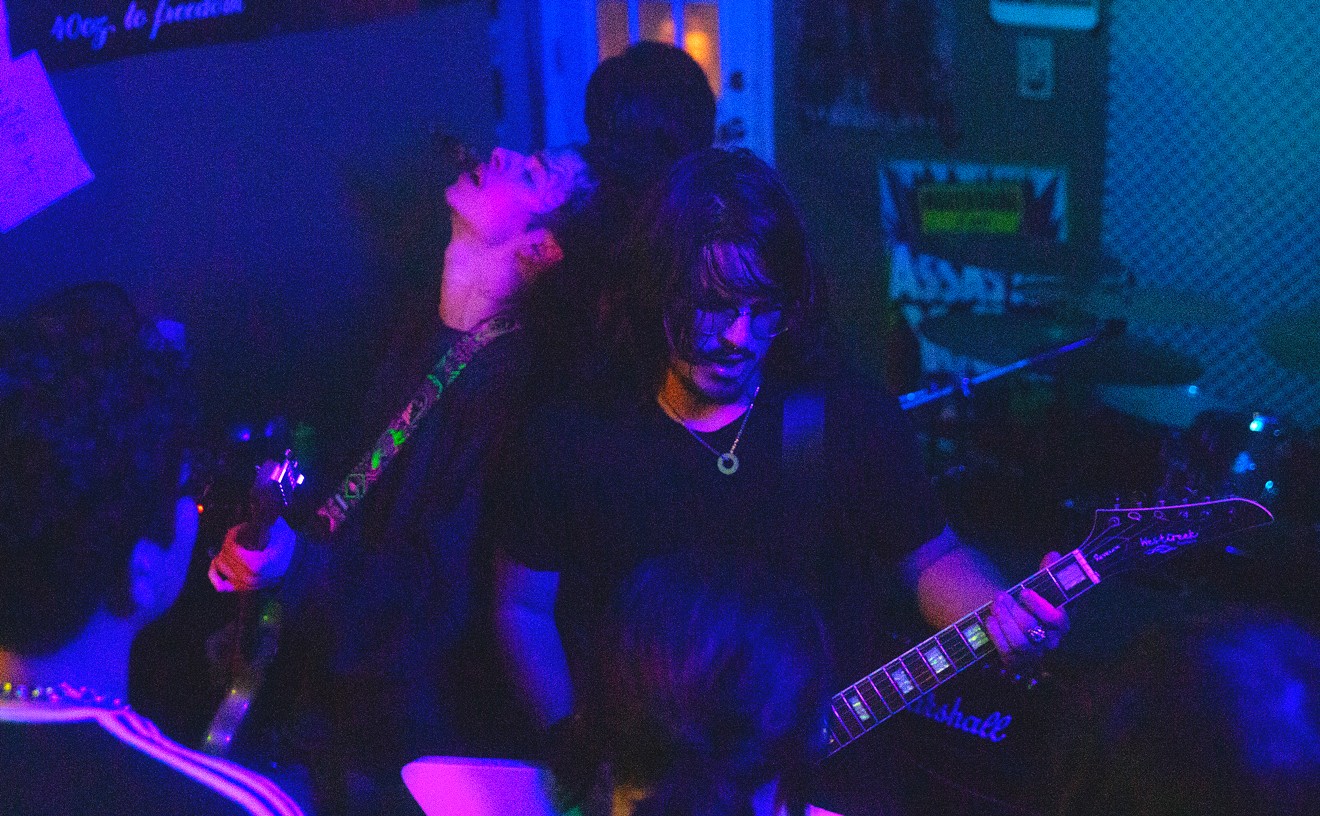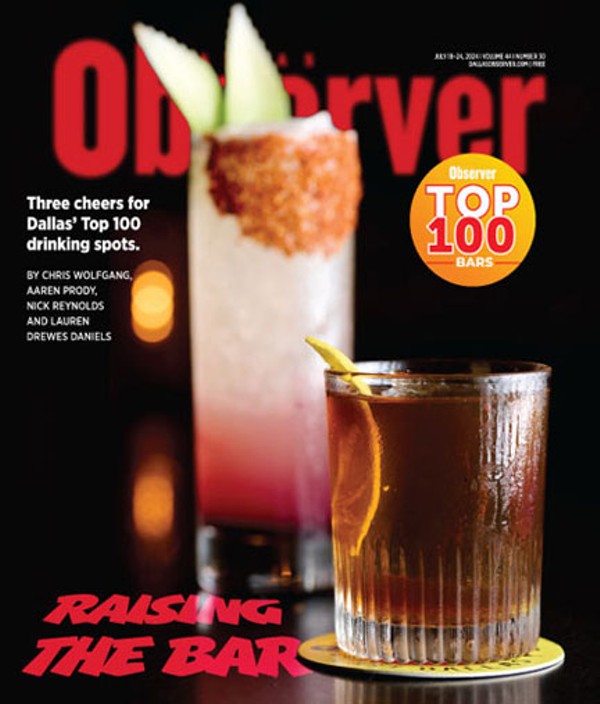Recorded in various studios across Philadelphia, New York City and Dallas, Baduizm’s 14 tracks of gospel-influenced R&B vocals over live instrumentation launched an era of neo-soul that maintains its impact 25 years later.
Producer Madukwu Chinwah first met Badu at KNON radio “in the '80s,” as he recalls. At the time, his credits mostly consisted of work on hip-hop tracks, but with his aptitude for various instruments, Chinwah was beginning to gravitate toward jazz, gospel and R&B sounds. At the time, Badu appeared on KNON as a hip-hop artist, and she'd told Chinwah she was interested in creating R&B music. When he produced a gospel album in 1994, he remembered, and the record included Badu singing background vocals.
The album never saw a physical release, but she would remember, too. Two years later, when Badu was signed with Universal Records and working on Baduizm, she enlisted Chinwah to produce the tracks “Rim Shot (Intro),” “Rim Shot (Outro),” “Certainly” and “Certainly (Flipped It).”
“[Badu] felt comfortable enough with me spearheading, having both bookends of the project,” Chinwah says. “I had an idea of what she wanted to do because she had already made several references to the types of instruments that she wanted to use. I didn't have to pull from crates, I didn’t have to sample anything, because I could actually play. I played piano, upright bass, those kinds of things.”
The record opens with Badu finding joy in simple drum and piano patterns. “I ain’t thinking about you, I came to hear my drummer play / boom-klat-boom-klat,” she sings over rim shots, before taking us deep into her neo-soul manifesto. The album closes with a reprise of this track, a choice Badu made to reflect her duality, according to Chinwah. Oftentimes on Baduizm, Badu’s signature duality is left open to interpretation.
“Certainly” and its reprise “Certainly (Flipped It)” are often interpreted by fans as being about Africans being forced to change their ways and assimilate to American culture after being brought to America. Others interpret the track’s subject as a cynical woman who changes her stance on love when a man comes along and inspires a new outlook.
Chinwah created “Certainly” using an upright bass and piano.
“Since this was her first non hip-hop project, ‘Certainly’ and other songs have two approaches," Chinwah says. "We have to remember she's still a rapper first. This helps her when it comes to creating music and being able to make something up on the fly.”
Early reviews of Baduizm compared Badu’s vocal stylings to those of Billie Holiday, though Chinwah says he wasn’t sure how Badu felt about those comparisons.
“That song has a lot of personality,” Chinwah says. “I played her the track for ‘Certainly,’ and she loved it because the bass was booming. It fit her personality. I had my fingers crossed because it wasn't something we had ever done.”
Badu premiered “Certainly” at the now-closed Onasile Gallery in Deep Ellum, months before the release of Baduizm.
“This is where musicians, mostly rappers, would gather from about 9 o’clock to about 2 in the morning,” Chinwah remembers. ”I mean, the best of the best. She actually introduced me to these people at this famed art gallery. She played it for them, and they loved it, they vibed to it. She promised to include it on the record, and I’m glad she did.”
Perhaps the most popular track from the Baduizm era is “On & On,” which contains influences of Middle Eastern and African musical stylings and the teachings of the Five-Percent Nation movement. It has remained one of Badu’s signature songs.
“When I listen to that song, and to the album, those songs sound just as good as they did 25 years ago,” says “On & On” producer and co-writer Jahmal “Jah Born” Cantero. “That's a timeless body of work with a great message. The impact that some of those messages and that album had on people is dope, and I've had a blessing and a chance to see that.”
When Jah Born first presented Badu his sounds, he recalls her “vibing very well” to the instrumentals. He created the instrumental for “On & On” using an Ensoniq EPS-16+ sampler workstation. Badu would thank him for the smooth sounds on the track with the famous line “Mad props to the god, Jah Born,” in the second chorus.
In 1998, the song would win a Grammy for Best Female R&B Vocal Performance. Baduizm, along with D’Angelo’s Voodoo, Maxwell’s Maxwell’s Urban Hang Suite and Jill Scott’s Who Is Jill Scott?: Words and Sounds Vol. 1 are often regarded as pillars among the catalysts of neo-soul. Jah Born posits that Baduizm is the first neo-soul album ever made.
“‘Neo-soul’ was [coined] when Baduizm dropped,” Jah Born says. “There had to be a name to describe what that sound was and they called it ‘neo-soul.’ This album was created by people that live in Dallas. You have to credit people like Madukwu, [producer and Badu’s cousin] Rob Free and myself for being the sound foundation that backed Erykah Badu at the time.”
The music video for “On & On” was inspired by the novel-turned-film The Color Purple, and sees Badu singing and dancing on a farm, hanging up laundry and tying a girl’s hair into a ponytail. Troy Smith, the music video's director of photography, considers this one of his all-time favorite music videos, and one of the best he’s ever worked on.
“[Badu and I] got along very well,” Smith says. “And when she decided that she wanted to do the ‘Next Lifetime’ [music video] herself, she and the record label asked me to come along and co-direct and shoot it, and also produce it.”
“‘Neo-soul’ was [coined] when Baduizm dropped ... There had to be a name to describe what that sound was and they called it ‘neo-soul.' This album was created by people that live in Dallas." – Producer Jah Born
tweet this
“Next Lifetime” tells the story of Badu longing for a man with whom she can’t be, as she is already in a relationship, but still maintaining they will be brought together in the “next lifetime.”
The song’s music video takes place across three “lifetimes”: ”Motherland, 1637 A.D.,” “The Movement, 1968” and “Motherland, 3037.” In each “lifetime,” she is bound to a different man. According to Smith, the treatment for the video was “all Erykah. She came up with the concept, I helped her minimally fine-tune it and get the visual aspects in the place. But the whole story was hers. And it was very good.”
Producer and rapper Pete Rock makes an appearance in the video, along with rappers Andre 3000 and Method Man, all of whom play Badu’s love interests in each lifetime.
“Method Man was just starting to want to act,” Smith says. ”He jumped at the chance to have a small acting role, and I thought it was very good. He said to me, ‘I'm going to parlay this into an acting career.’ And he did.”
The video received The NAACP Image Award for Outstanding Music Video in 1998 and has since remained one of Badu’s most revered works, despite not being available for viewing on YouTube or Vevo. While Smith hasn’t worked with Badu since these videos, he still holds the visuals close to his heart.
“The only difficult part I can remember is when we were doing the future scene … we were shooting north of Los Angeles and it was particularly cold,” Smith recalls. “It was ‘L.A. cold,’ which is in the high 30s. Everybody was in their African garb, and I remember Erykah didn't want to perform. She was saying ‘I'm just too cold, let's just put this off.’ And I remember very distinctly ‘You're going to be cold tonight, but this video is great, and that's going to last forever. You'll forget about the cold tomorrow. And she just looked at me, shook her head, then came out and killed it.”
Baduizm remains a classic and a favorite among Dallasites, many of whom will gather to celebrate the album, and Badu herself, at Badu’s annual birthday celebration at The Factory on Feb. 26. Five albums and two mixtapes into her career, Badu is known for taking long hiatuses between her albums, but her meticulous approach to sound, lyricism and visual storytelling make all of her projects feel both timely and timeless.
“If she doesn't feel it, she's not going to do it,” Chinwah says. “She came to break the rules, so sometimes [her process] is a little foreign to producers, because she really is good at creating on the fly. And she knows exactly what she wants in the end.”

